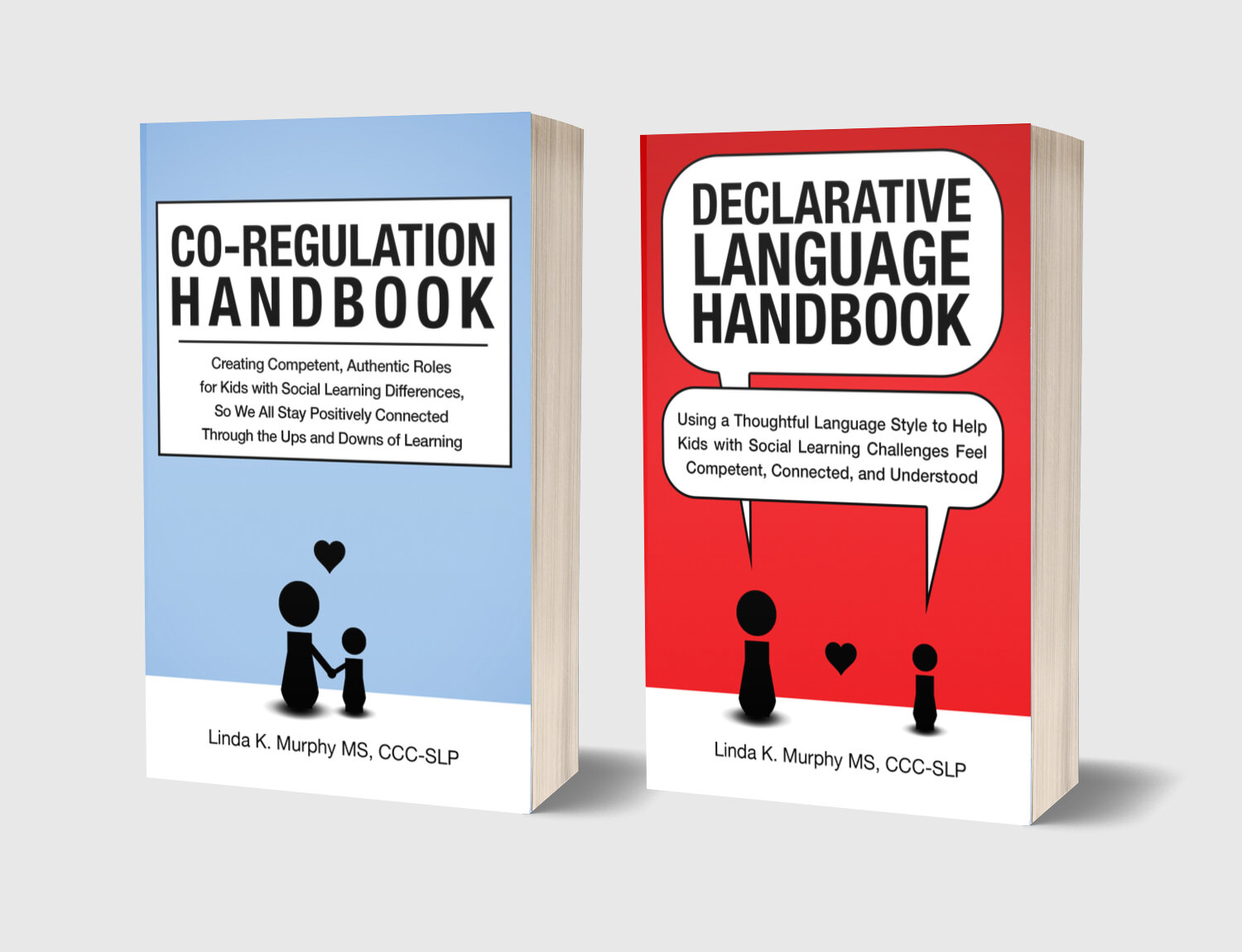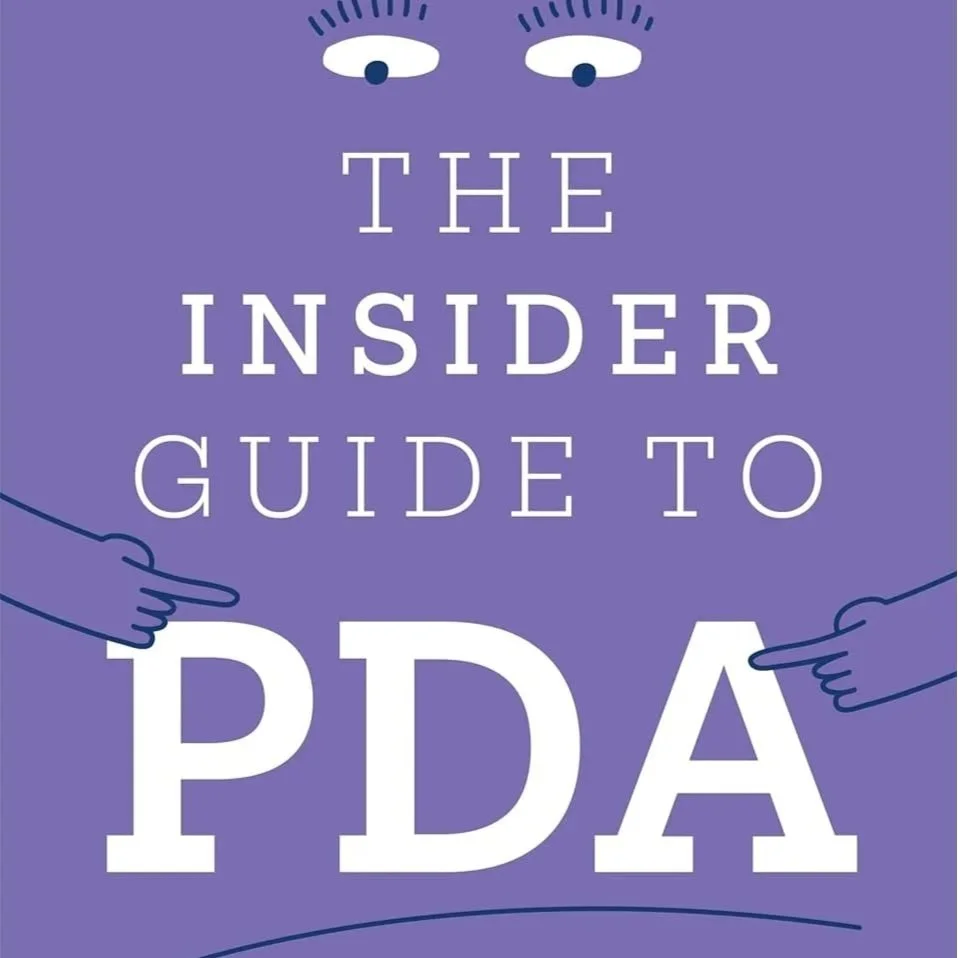Check out what’s new with Declarative Language & Co-Regulation!
The Books…
CO-REGULATION HANDBOOK
Creating Competent, Authentic Roles for Kids with Social Learning Differences, So We All Stay Positively Connected Through the Ups and Downs of Learning
by Linda K. Murphy MS, CCC-SLP
Launched March 7th, 2021
Declarative Language Handbook
Using a Thoughtful Language Style to Help Kids with Social Learning Challenges Feel Competent, Connected and Understood
by Linda K. Murphy MS, CCC-SLP
Launched March 7th, 2020











